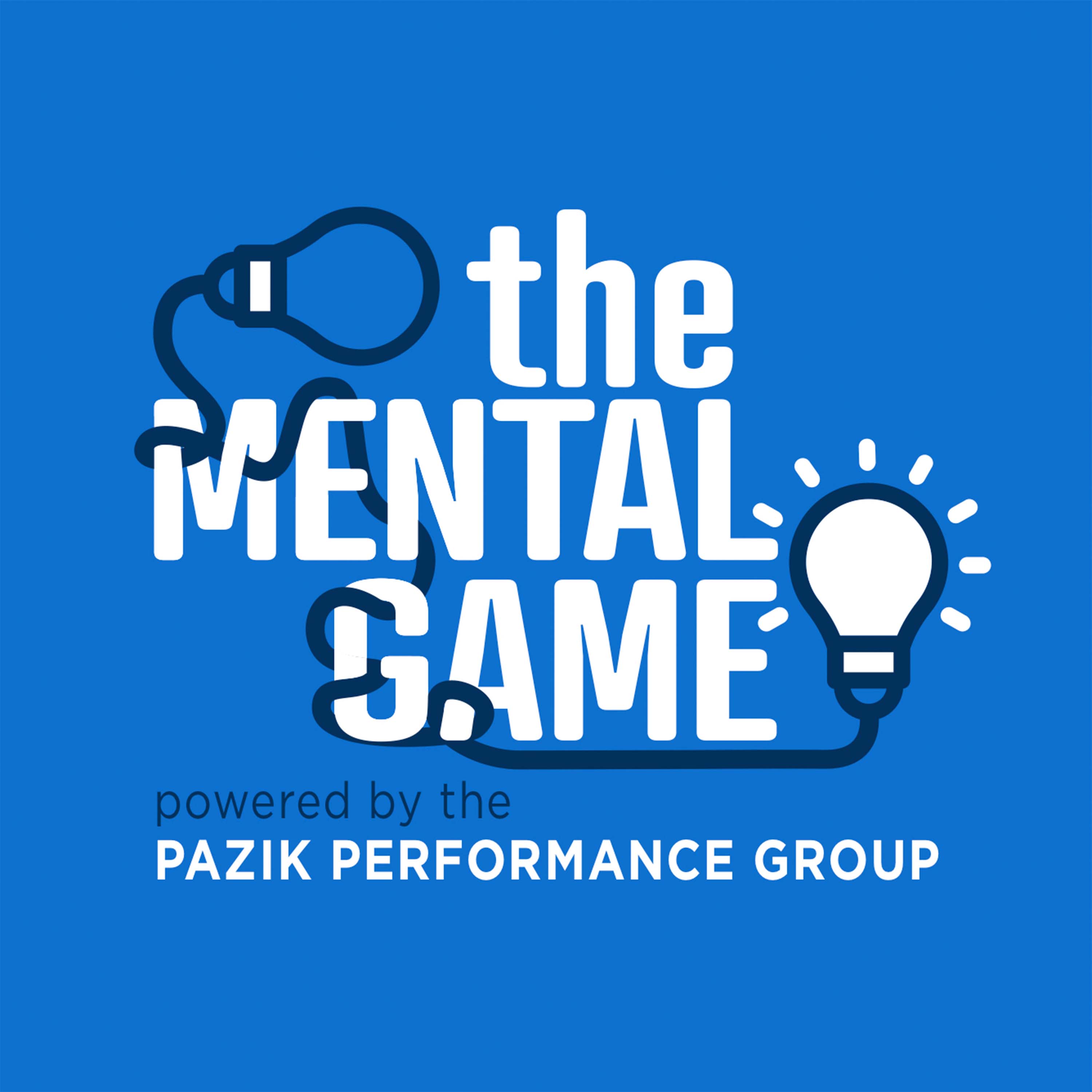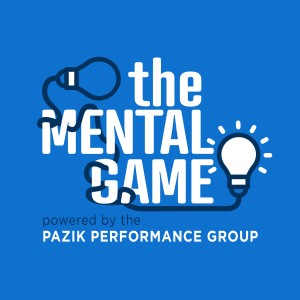

28.9K
Downloads
424
Episodes
If you want to improve your confidence, culture, or communication within yourself, business, team, or your sport like baseball, softball, basketball, bowling, etc., then this is the podcast for you. Monday through Saturday we‘re putting out a quick hitter-episode for you to mentally prepare and learn more about sport psych and mental performance.
If you want to improve your confidence, culture, or communication within yourself, business, team, or your sport like baseball, softball, basketball, bowling, etc., then this is the podcast for you. Monday through Saturday we‘re putting out a quick hitter-episode for you to mentally prepare and learn more about sport psych and mental performance.
Episodes

Thursday Nov 04, 2021
#270 - Daily MG - MVP Machine by Ben Lindbergh and Travis Sawchik - 4 of 6
Thursday Nov 04, 2021
Thursday Nov 04, 2021
"In his 1970 book The Science of Hitting, Williams recalled that Hornsby, whom Rickey had rebuilt, taught him, “A great hitter isn’t born, he’s made. He’s made out of practice, fault correction, and confidence.”21 Williams tried to impart the same lesson to his academy audience. “He talked about not taking one hundred swings a day, but five hundred swings a day,” Stewart remembers." - Travis Lindbergh

Wednesday Nov 03, 2021
#269 - Daily MG - MVP Machine by Ben Lindbergh and Travis Sawchik - 3 of 6
Wednesday Nov 03, 2021
Wednesday Nov 03, 2021
"Even so, Wrigley continued to rebel against orthodoxy, installing retired air force colonel Robert W. Whitlow as the team’s athletic director. Whitlow, who was supposed to oversee the entire organization and report to Wrigley directly, purchased exercise equipment, formulated workout and nutrition regimens, and proposed applying psychology to the team’s operations, but like Griffith before him, he was largely ignored and resigned after the 1964 season, prompting Wrigley to lament that “baseball people are slow to accept anyone with new ideas.” - Travis Lindbergh

Tuesday Nov 02, 2021
#268 - Daily MG - MVP Machine by Ben Lindbergh and Travis Sawchik - 2 of 6
Tuesday Nov 02, 2021
Tuesday Nov 02, 2021
"In 1938, he invited the first failure by hiring Coleman R. Griffith, a groundbreaking researcher in the fledgling field of sports psychology, to consult for the Cubs on implementing a rigorous training program. As Professor Richard J. Puerzer recounted in a 2006 essay for the Society for American Baseball Research (SABR), Griffith’s work included “filming players, recommending improved training regimes, the documentation of player progress through charts and diagrams, and changes in batting and pitching practice in order to make the practice sessions more closely resemble game conditions.”10 The psychologist was speaking the language of advanced player development about eight decades ahead of his time." - Ben Lindbergh

Monday Nov 01, 2021
#267 - Daily MG - MVP Machine by Ben Lindbergh and Travis Sawchik - 1 of 6
Monday Nov 01, 2021
Monday Nov 01, 2021
"[He] believes in warming up to throw, not throwing to warm up" - Ben Lindbergh

Saturday Oct 30, 2021
#266 - Daily MG - Breath by James Nestor - 6 of 6
Saturday Oct 30, 2021
Saturday Oct 30, 2021
"Nitric oxide is a powerhouse molecule that widens capillaries, increases oxygenation, and relaxes the smooth muscles. Humming increases the release of nitric oxide in the nasal passages 15-fold. There is the most effective, and simple, method for increasing this essential gas. Breathe normally through the nose and hum, any song or sound. Practice for at least five minutes a day, more if possible. It may sound ridiculous, and feel ridiculous, and annoy those nearby, but the effects can be potent." - James Nestor

Friday Oct 29, 2021
#265 - Daily MG - Breath by James Nestor - 5 of 6
Friday Oct 29, 2021
Friday Oct 29, 2021
"Here’s the information: To practice Wim Hof’s breathing method, start by finding a quiet place and lying flat on your back with a pillow under your head. Relax the shoulders, chest, and legs. Take a very deep breath into the pit of your stomach and let it back out just as quickly. Keep breathing this way for 30 cycles. If possible, breathe through the nose; if the nose feels obstructed, try pursed lips. Each breath should look like a wave, with the inhale inflating the stomach, then the chest. You should exhale all the air out in the same order. At the end of 30 breaths, exhale to the natural conclusion, leaving about a quarter of the air left in the lungs, then hold that breath for as long as possible. Once you’ve reached your breathhold limit, take one huge inhale and hold it another 15 seconds. Very gently, move that fresh breath of air around the chest and to the shoulders, then exhale and start the heavy breathing again. Repeat the whole pattern three or four rounds and add in some cold exposure (cold shower, ice bath, naked snow angels) a few times a week." - James Nestor

Thursday Oct 28, 2021
#264 - Daily MG - Breath by James Nestor - 4 of 6
Thursday Oct 28, 2021
Thursday Oct 28, 2021
"When Buddhist monks chant their most popular mantra, Om Mani Padme Hum, each spoken phrase lasts six seconds, with six seconds to inhale before the chant starts again. The traditional chant of Om, the “sacred sound of the universe” used in Jainism and other traditions, takes six seconds to sing, with a pause of about six seconds to inhale." - James Nestor

Wednesday Oct 27, 2021
#263 - Daily MG - Breath by James Nestor - 3 of 6
Wednesday Oct 27, 2021
Wednesday Oct 27, 2021
"The perfect breath is this: Breathe in for about 5.5 seconds, then exhale for 5.5 seconds. That’s 5.5 breaths a minute for a total of about 5.5 liters of air." - James Nestor

Tuesday Oct 26, 2021
#262 - Daily MG - Breath by James Nestor - 2 of 6
Tuesday Oct 26, 2021
Tuesday Oct 26, 2021
"Every healthy cell in the body is fueled by oxygen, and this is how it’s delivered. The entire cruise takes about a minute, and the overall numbers are staggering. Inside each of our 25 trillion red blood cells are 270 million hemoglobin, each of which has room for four oxygen molecules. That’s a billion molecules of oxygen boarding and disembarking within each red blood cell cruise ship." - James Nestor

Monday Oct 25, 2021
#261 - Daily MG - Breath by James Nestor - 1 of 6
Monday Oct 25, 2021
Monday Oct 25, 2021
"This book will explore many things: evolution, medical history, biochemistry, physiology, physics, athletic endurance, and more. But mostly it will explore you. By the law of averages, you will take 670 million breaths in your lifetime. Maybe you’ve already taken half of those. Maybe you’re on breath 669,000,000. Maybe you’d like to take a few million more." - James Nestor